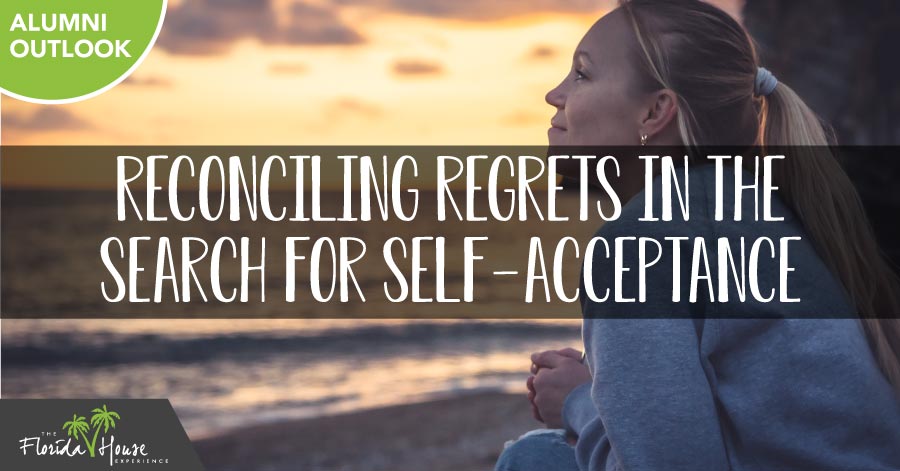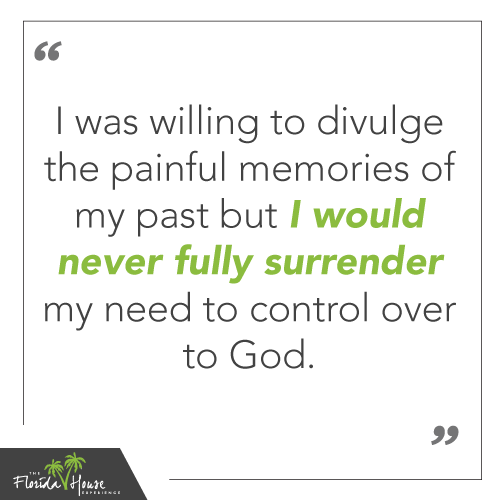
“…we can fortify and cheer ourselves by remembering what A.A. experience in this Step has meant to others. It is the beginning of the end of isolation from our fellows and God.”
(Twelve Steps and Twelve Traditions pg. 82)
 For as long as I can remember, I always found a way to turn any disastrous trauma into utter victimization and self-pity. This played a major role in my self-sabotaging behaviors and fueled my oblivion-seeking addiction. After years of substance abuse, I was left broken and seemingly hopeless. Prior to walking into the rooms of Alcoholics Anonymous, I was completely incapable of recognizing that my misery was always self-propelled, in one way or another. If I found myself at fault, I would create the space to wallow in guilt and shame. The 12 Steps forced me to “disregard the other person involved entirely.” Little did I know practical application and humility were the only way I would ever find the serenity I desperately sought after. The truth is, my past wreckage seemed to involve one common denominator: me.
For as long as I can remember, I always found a way to turn any disastrous trauma into utter victimization and self-pity. This played a major role in my self-sabotaging behaviors and fueled my oblivion-seeking addiction. After years of substance abuse, I was left broken and seemingly hopeless. Prior to walking into the rooms of Alcoholics Anonymous, I was completely incapable of recognizing that my misery was always self-propelled, in one way or another. If I found myself at fault, I would create the space to wallow in guilt and shame. The 12 Steps forced me to “disregard the other person involved entirely.” Little did I know practical application and humility were the only way I would ever find the serenity I desperately sought after. The truth is, my past wreckage seemed to involve one common denominator: me.
Upon first getting sober, I found a sponsor, attended AA meetings daily and chased after validation like my last drink. I thought I found my solution in the flattering compliments of recovering boys. As expected, this didn’t last long. Misleading and taunting my next victim, I came up empty. I was willing to divulge the painful memories of my past but I would never fully surrender my need to control over to God. I would hand over one aspect, but I would cling to the fears and pains that served me. Traumas from my past and daily chaos eventually mirrored the same misery I reveled in my entire life. My drug use became my solution but once removed, my behaviors lingered. Perhaps fear propelled my desire to stay away from opiates; but two years sober, I finally got miserable enough to change.
 I despairingly requested to go through the steps again with my sponsor. Clinging to the women I respected and admired, I ventured out to find a new way of life. It started with rigorous honesty and ended with grace and walking through every fear I encountered. As we sat down to do my 5th step I remember the first and most detailed resentment on my list was me. I thrived on self-hatred and shame. Wearing guilt like a warm blanket, my sponsor graciously asked why the Creator of the universe already forgave me but I refused to follow suit. After all, how can I possibly forgive others and rid myself of the bondage of self-pity if I couldn’t forgive myself? At first, I was offended and baffled by the idea that I was the only one holding onto the condemnation I reveled in. After processing her questions, I realized I have the unrelenting desire to judge and overcomplicate the basic requirements to stay sober. It was a spiritual experience, to say the least.
I despairingly requested to go through the steps again with my sponsor. Clinging to the women I respected and admired, I ventured out to find a new way of life. It started with rigorous honesty and ended with grace and walking through every fear I encountered. As we sat down to do my 5th step I remember the first and most detailed resentment on my list was me. I thrived on self-hatred and shame. Wearing guilt like a warm blanket, my sponsor graciously asked why the Creator of the universe already forgave me but I refused to follow suit. After all, how can I possibly forgive others and rid myself of the bondage of self-pity if I couldn’t forgive myself? At first, I was offended and baffled by the idea that I was the only one holding onto the condemnation I reveled in. After processing her questions, I realized I have the unrelenting desire to judge and overcomplicate the basic requirements to stay sober. It was a spiritual experience, to say the least.
I began looking at the people I harmed and at first, I was mortified. After all, I was a tornado ripping through the lives of everyone I encountered. I stole, lied, cheated, manipulated, and hurt everyone I loved. Steps 8 and 9 brought me to my knees, not in despair… but in utter humility. I was sick and, although a tall order, I had some serious amends to make. Thankfully, I accepted the stark reality that guilt and shame never served me. In fact, they were my adversaries.
The only way to overcome my incessant ‘pity party’ was to find the willingness to make amends. I specifically remember having to call my father and admit to pawning a family heirloom. He knew what I had done, long before I took accountability. The beauty of this particular amends was hearing my father say “You don’t need to buy me another necklace. You need to keep doing what you’re doing. I am so proud of you and that was in the past.” My father had forgiven me for the harm I caused long before I even considered forgiving myself. It would be foolish for me to say that every circumstance mirrored this one. I remember the amends I attempted to make with my son. This particular “reconciliation” was perhaps the most terrifying. I spent years, emotionally unavailable, hurting a defenseless child. I carried more guilt and shame with the harms surrounding our relationship than any other. When I sat my son down to talk, he was reluctant to revisit those painful memories. Can I really blame him? He became a skeptic of his own mother, and I deserved every ounce of mistrust that seeped into our relationship. I will never forget my 8-year old’s response: “I love you and I’m proud of you. But mom, you need to just show me that it’s different.”
 Grace met me face to face. The beauty of valiantly cleaning up the wreckage of our past is freedom from the bondage of self. There was no more pity, justifiable resentments, or judgment. I was driven by a thousand forms of fear, filling my ear with a list of inadequacies. Getting honest and finding the courage to revisit the pain I caused others demolished the cross of guilt I was carrying. Not only did the victims, of my ravishing addiction, find healing but so did I. Guilt, shame, and regret started to leave me. I began viewing myself as an equal to all of my fellows. No longer greater than or less than, but equal. I began to view my relationships and life from an entirely different perspective.
Grace met me face to face. The beauty of valiantly cleaning up the wreckage of our past is freedom from the bondage of self. There was no more pity, justifiable resentments, or judgment. I was driven by a thousand forms of fear, filling my ear with a list of inadequacies. Getting honest and finding the courage to revisit the pain I caused others demolished the cross of guilt I was carrying. Not only did the victims, of my ravishing addiction, find healing but so did I. Guilt, shame, and regret started to leave me. I began viewing myself as an equal to all of my fellows. No longer greater than or less than, but equal. I began to view my relationships and life from an entirely different perspective.
The grass was greener, the skies bluer, and life wasn’t so bad. The only way I can conceptualize this experience is to categorize it as one of the spiritual variety. Gratitude swept in and carried away the judgments and criticisms of not only myself but everyone I encountered. I started to identify the same adversities I struggled with in the lives of my foes. We were all trudging through life, the best we can with what we have. Years sober, and I finally felt like I could breathe for the first time. No longer suffocating in agony, I jumped into creating a life that thrived encompassed integrity and grace. Almost every addict finds reprieve in obsessing over past trauma and recreating the same cycles that led to our demise. The Big Book describes resentments as “the number one offender” for an alcoholic like me. This includes resentments I hold onto against myself. My experiences in recovery have proven this to be true. Today, I try to make the conscious decision to promptly admit when I am wrong and I strive to be a better version of myself each day.
Read more Alumni Outlook Articles






